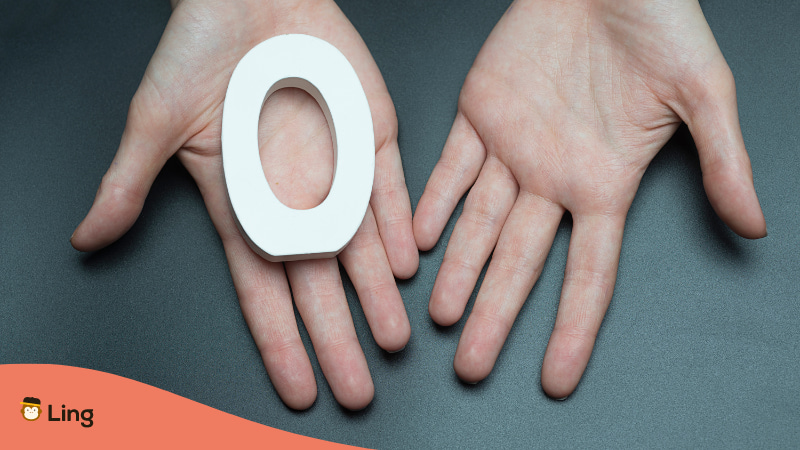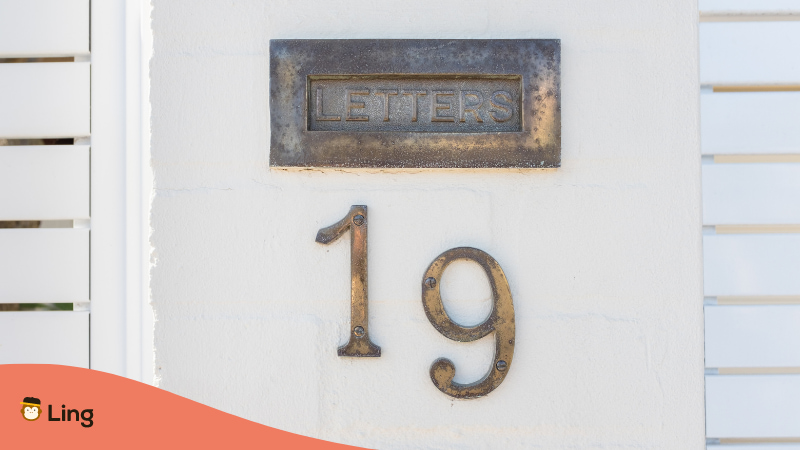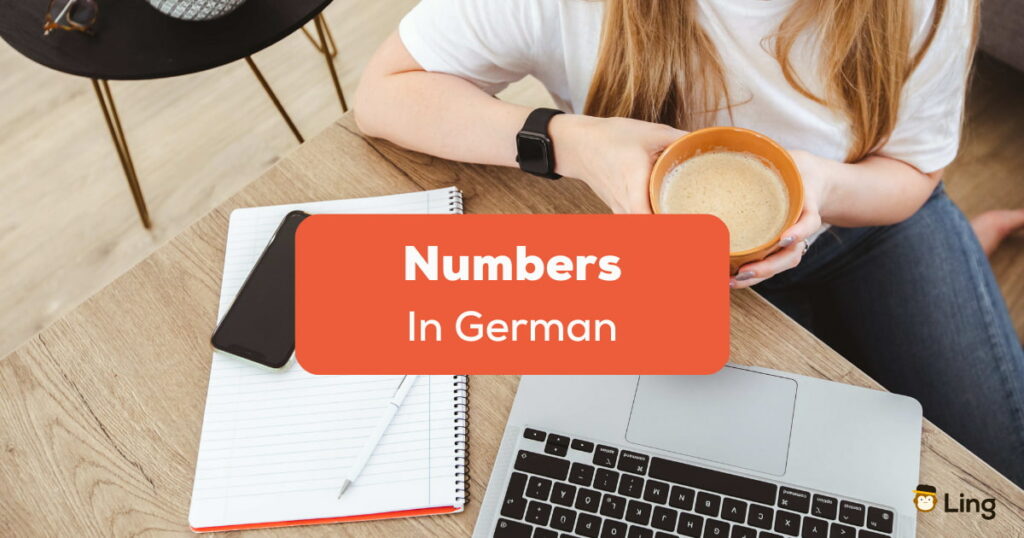Alright, here we go! It’s time to learn numbers in German. Which is just as important as knowing your ABCs or colors. This is one of the first steps to learning German, or any new language, for that matter.
Counting is one of the fundamentals of language learning and will help you read and write numbers and speak them. It will help you communicate in Germany while shopping. Knowing numbers in German can make you feel more confident that you’re being charged the correct prices for things. Thankfully, learning German numbers is easy once you get beyond numbers 0-19.
Let’s start learning to count in German and learn the basics and the rules for reading, writing, and speaking numbers in German.
Understand Pronunciation First

How To Speak German Vowels Properly
Just like many languages, German uses vowels that, at first glance, seem similar to their English counterparts. However, their pronunciation is quite different and may seem odd or difficult.
We’re looking at German vowel pronunciation because they are an essential part of learning numbers in German. All German numbers have vowels in them.
First, let’s look at the A vowel. It’s common to see it written with two dots above it like this Ä. The two dots indicate a change in sound, and the symbols are called umlaut. When you see Ä, it indicates you should make either a long A sound like in ‘gang’ or a long E sound like in ‘seed.’
Next is O. This one is strange because instead of saying oh, you’re going to make the long E sound apparently while keeping your mouth in the same shape as if you were going to make the long O sound. Try it! Ö
Lastly, there’s the long U sound. Ü might seem familiar if you live in North America and have Über. But get this! Americans have the pronunciation completely wrong! The Ü in German doesn’t make a long U sound at all! It makes the long E sound like the word ‘see.’ Funny, right?
How To Pronounce German Diphthongs
Okay, so what on earth is a diphthong? Is it a type of flip-flop? Is it some sort of weird underwear? No! It’s when two vowels are joined together to form a single sound or syllable. Here are some diphthongs you must know to read and say numbers in German.
- IE say it like a long E as in been, keen, seen
- EI will sound like long I as in mine, fine, dine
- EU will sound like OI, as in boil, toil, foil
How To Say German Consonants Properly
If you’ve ever studied Spanish before, you’re familiar with how ‘V’ actually sounds like ‘B’. German is similar, and this will take some quick memorization to pick up and apply to learning your numbers in German.
- Ch is pronounced J
- H is pronounced J
- J is pronounced LL
- PH is pronounced F
- R is similar to R in French
- TION is pronounced TSION
- W is pronounced V
- V is pronounced F
- Z is pronounced TS
- ẞ is pronounced S

German Numbers From 0 – 12
Okay, now we’re ready to learn German numbers! We’ll start with the first 12 numbers in the German language because they only consist of a single word making them the easiest to practice.

German Numbers From 13 To 19
Next up are numbers 13-19 because they all end with the same final sound, zehn. Zehn means 10. The order of these is the unit digit followed by zehn. It means that when directly translated, 13 is 3 and 10. Let’s take a look.
| Ordinal Number | German Number | Sound |
| 13 | dreizehn | |
| 14 | vierzehn | |
| 15 | fünfzehn | |
| 16 | sechzehn | |
| 18 | achtzehn | |
| 19 | neunzehn | |
| 20 | zwanzig | |
| 30 | dreißig | |
| 40 | vierzig | |
| 50 | fünfzig | |
| 60 | sechzig | |
| 70 | siebzig | |
| 80 | achtzig | |
| 90 | neunzig | |
| 100 | einhundert |

What About The Numbers In Between?
How do you say 31 in German or 67? Not to worry, we’ll walk you through a few examples, and we know you’ll pick up on the pattern pretty quickly.
If you are familiar with numbers in English, then you’re used to the tens unit being stated before the units place like twenty-one.
However, as you may have noticed, with numbers in German from 13-19, the order is the opposite in the German language. Rather you say one and twenty, and the number is written all as one word – no spaces!
Here are some examples to help you see what we mean:
- 22 zweiundzwanzig two and twenty
- 26 sechsundzwanzig one and thirty
- 39 neununddreißig nine and thirty
- 42 zweiundvierzig two and forty
- 44 vierundvierzig four and forty
- 52 zweiundfünfzig two and fifty
- 57 siebenundfünfzig seven and fifty
- 68 achtundsechzig eight and sixty
- 65 fünfundsechzig five and sixty
- 77 siebenundsiebzig seven and seventy
- 72 zweiundsiebzig two and seventy
- 81 einundachtzig one and eighty
- 85 fünfundachtzig five and eighty
- 99 neunundneunzig nine and ninety
- 94 vierundneunzig four and ninety

How To Count In Hundreds In German
Thank goodness learning to count in hundreds in German is really easy! Once you learn the numbers 1-9, this will be easy to memorize. All you need to do is put the German word for numbers 1-9 before the word hundert, which, you guessed it – means 100. Take a look.
| Ordinal Numbers | German Numbers | Sound |
| 100 | hundert | |
| 200 | zweihundert | |
| 300 | dreihundert | |
| 400 | vierhundert | |
| 500 | fünfhundert | |
| 600 | sechshundert | |
| 700 | siebenhundert | |
| 800 | achthundert | |
| 900 | neunhundert |

Counting By Thousands In German
The exact same rule that applies to counting in hundreds applies to counting in thousands. You just add the word tausend after the 1-9 digit.
| Ordinal Numbers | German Numbers | Sound |
| 1000 | tausend | |
| 2000 | zweitausend | |
| 3000 | dreitausend | |
| 4000 | viertausend | |
| 5000 | fünftausend | |
| 6000 | sechstausend | |
| 7000 | siebentausend | |
| 8000 | achttausend | |
| 9000 | neuntausend |

Higher Numbers In German
You likely won’t be purchasing anything for these amounts if you are a tourist, but if you’ve settled down and are looking to buy a car, an apartment, or a house, then you’ll definitely need to know the numbers from 10,000 through the millions.
Once again, you’ll see the number organization is the same as counting in 100s or 1000s.
| Ordinal Numbers | German Numbers | Sound |
| 10000 | zehntausand | |
| 20000 | zwanzigtausend | |
| 100000 | hunderttausend | |
| 1000000 | eine Million | |
| 2000000 | zwei Millionen | |
| 1000000000 | eine Milliarde |
Okay, But How Do You Read Other Numbers In German?
If you thought writing numbers in words in other languages was difficult, wait until you see large numbers in German! The words turn into one giant long word that goes on forever. Here’s an example:
3627
dreitausendsechshundertsiebenundzwanzig
What?! Yup, that’s one number. How about another example that’s not too intense:
202
Finally, another longer example:
12786
zwölftausendsiebenhundertsechsundachtzig
Can you tell now where the numbers begin and end in these words? Make that your challenge for the next few moments.
Want To Learn More German? Use The Ling App!
You know you want to! After seeing how easy learning German numbers are, learning German can’t be that hard, right? Well, with the Ling app, we make learning new vocabulary easy and fun because you get to play games and take on challenges on our app.
With Ling, you’ll also get to hear real Germans having conversations along with learning to read and write.
If this language doesn’t seem like the right fit for you, then you can try out 60 other languages through our app, and you can get started today. Download the Ling app now on the Play Store or App Store.
Our mascot, Ling, is ready and waiting to give you the best learning language journey you’ll have. Get going!

















